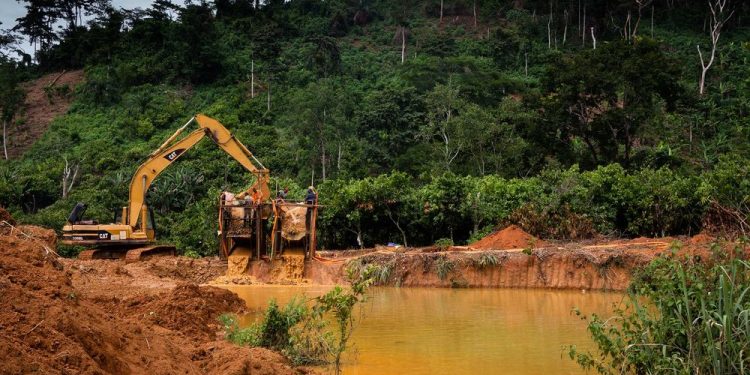
A joint statement from WACAM, the Centre for Public Interest Law (CEPIL), and the Centre for Environmental Impact Analysis (CEIA) has shed light on the devastating effects of surface mining operations in Ghana.
To address these issues, the groups propose a non-partisan approach, uniting stakeholders to tackle critical concerns.
The non-partisan strategy includes a moratorium on new mining licenses to prevent further environmental degradation and social displacement, a joint citizens’ mass actions to mobilize communities, civil society, and government agencies and reviewing and strengthening laws to incorporate robust environmental safeguards and hold mining companies accountable.
According to the groups, the consequences of inaction are dire, with mining operations displacing indigenous communities and contaminating drinking water sources. The group also blamed the Minerals and Mining Act (2006) for failing to hold mining companies accountable for environmental violations.
The joint statement emphasizes the urgent need for collective action to address the root causes of surface mining problems in Ghana.
By adopting a comprehensive, non-partisan approach, Ghana can, mitigate adverse environmental impacts, ensure sustainable livelihoods for affected communities and promote alternative livelihoods.
It will also strengthen institutions regulating mining activities and empower local communities to assert their rights,” the statement stated.
Through collective action and commitment to change, Ghana can reclaim its natural resources and build a better future for its people.
For over two decades, these organizations have worked tirelessly to promote and protect the rights of communities and the environment affected by mining and resource extraction activities.
The groups have addressed critical issues, including brutalization and human rights abuses, environmental degradation, economic displacement, and weak regulations. Ghana has recorded 19 official cyanide spillages between 1989 and 2003, with numerous unofficial incidents.
Studies have revealed alarming levels of heavy metals in water bodies and poor air quality. The consequences of inaction are dire, with mining operations displacing indigenous communities and forcing farmers to become miners. The weak Minerals and Mining Act (2006) fails to hold mining companies accountable for environmental violations.

